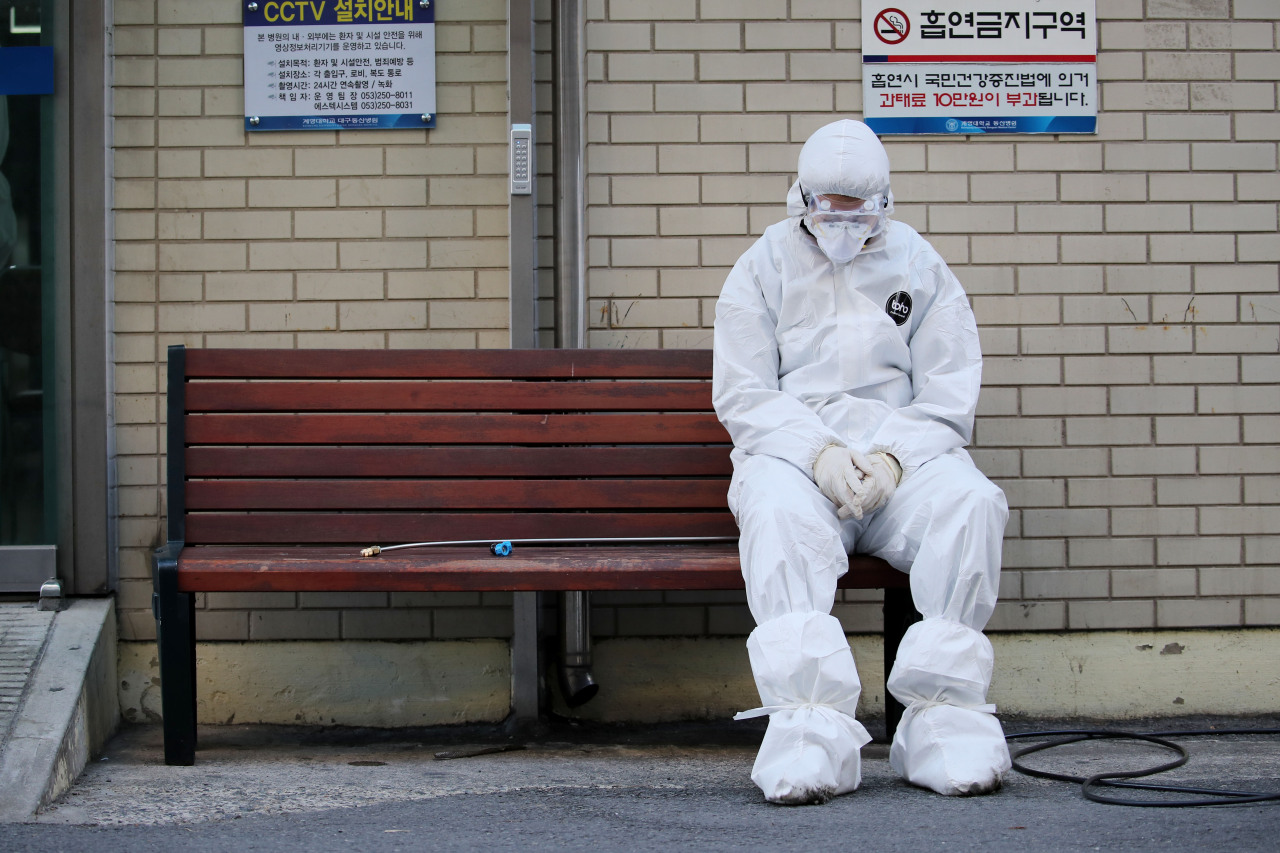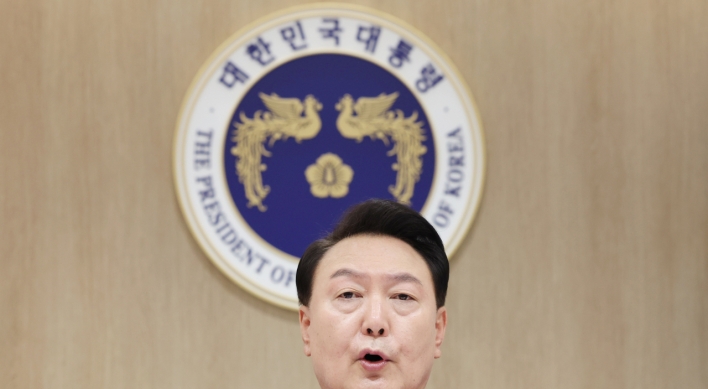Bracing for a long battle
What needs to be done to combat the virus, with a protracted fight ahead
By Kim ArinPublished : Feb. 23, 2020 - 18:34

As the incidence of new COVID-19 cases surges in South Korea, health experts say the country needs to revise its action plan to withstand the long-term impact of the outbreak. In a protracted fight against the disease, pacing is key and personal precautions imperative, experts said.
Admit patients based on severity of symptoms
COVID-19 patients, in principle, should be isolated in negative pressure rooms. But if infections continue to multiply and single rooms run out, patients will be hospitalized in groups based on the severity of their symptoms -- an approach known as “cohorting.” Experts suggest separating hospitals for patients with mild symptoms from those with more severe symptoms. If the outbreak persists, and beds run out, patients with less severe cases may be prescribed at-home treatment.
Boost availability of personal protective equipment
The Korea Centers for Disease Control and Prevention says suspected patients should be tested promptly and quarantined if found to be infected. Enough facilities should be secured as new patients are being diagnosed at an accelerating rate. In addition, protective equipment such as face masks and hand sanitizers should be made more widely available, as shortages have been reported since the outbreak started.
Protect medical staff
The KCDC said health officials and medics at private medical institutions should work in coalitions to make up for the lack of staff and resources. The Korean Medical Association has called for government support to ensure a sufficient supply of protective gear for health workers. Authorities advise health workers to wear goggles, safety gowns and face masks with filtration capabilities of N95 when tending to respiratory patients.
Regional response needed
As new cases are emerging simultaneously across the country, district offices are encouraged to take proactive steps rather than wait for guidelines from the government. This is to facilitate prompt detection, according to the Korean Society of Infectious Diseases. There should be medical institutions assigned to the treatment of COVID-19 patients in every region, to prevent patients with other illnesses from being exposed to the virus.
Abide by safety measures
The KCDC advises personal hygiene practices such as hand washing and covering one’s mouth with one’s sleeve when coughing, wearing face masks outside the home and calling its hotline at 1339 in the event of respiratory or cold symptoms. Crowded spaces are best avoided, including public transportation. Refrain from visiting hospitals or clinics if symptoms are not severe, to prevent coming in contact with infected persons and to allow medics to focus on critical cases.
By Kim Arin (arin@heraldcorp.com)



















